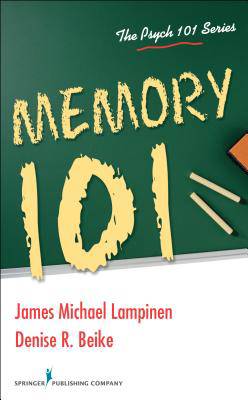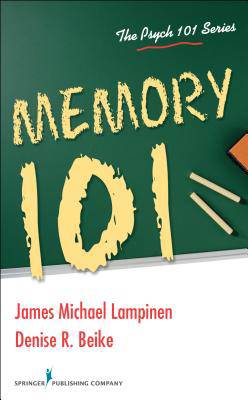
- Retrait gratuit dans votre magasin Club
- 7.000.000 titres dans notre catalogue
- Payer en toute sécurité
- Toujours un magasin près de chez vous
- Retrait gratuit dans votre magasin Club
- 7.000.0000 titres dans notre catalogue
- Payer en toute sécurité
- Toujours un magasin près de chez vous
Description
Contemporary research has found that memory is much more than the process for recalling information that has been learned and retained√>=it is a rich, nuanced process that is an important part of every human activity. This highly readable foundational text provides an overview of the theories and research on human memory from a psychological perspective. Grounded in the premise that all psychological processes depend on memory, and that memory is shaped by the functions it serves, the authors look at a wide range of memory processes and discuss the major theories that have been developed to explain how it functions.
This book describes the major structural and functional theories that guide our understanding of memory. The authors then focus on everyday functions of memory, including memorizing things, remembering to do things (prospective memory), and recalling how to do things, such as skills, procedures, and navigation. Disorders of memory including Alzheimer's and amnesia are examined along with exceptional memory skills, such as the phenomenon of individuals with highly superior autobiographical memory. The book also addresses the intriguing and controversial topics of repressed and recovered memories, the validity of memory in courtroom testimony, and the effects of remembering traumatic events. Illustrative examples, metaphors, and humor make for a text that is engaging and entertaining, resulting in a valuable, concise introduction for students.
Key Features:
- Provides a concise, easy-to-read, yet scientifically based survey of theory and current research on memory
- Grounded in the concept that memory is foundational to all psychological processes and human experience
- Covers controversial and intriguing topics including repressed and recovered memories, memory in legal testimony, amnesia, and the phenomenon of super memory
- Explores the myths and realities surrounding memory loss
The Psych 101 Series
Short, reader-friendly introductions to cutting-edge topics in psychology. With key concepts, controversial topics, and fascinating accounts of up-to-the-minute research, The Psych 101 Series is a valuable resource for all students of psychology and anyone interested in the field.
Spécifications
Parties prenantes
- Auteur(s) :
- Editeur:
Contenu
- Nombre de pages :
- 312
- Langue:
- Anglais
- Collection :
Caractéristiques
- EAN:
- 9780826109248
- Date de parution :
- 25-11-14
- Format:
- Livre broché
- Format numérique:
- Trade paperback (VS)
- Dimensions :
- 127 mm x 201 mm
- Poids :
- 317 g

Les avis
Nous publions uniquement les avis qui respectent les conditions requises. Consultez nos conditions pour les avis.






